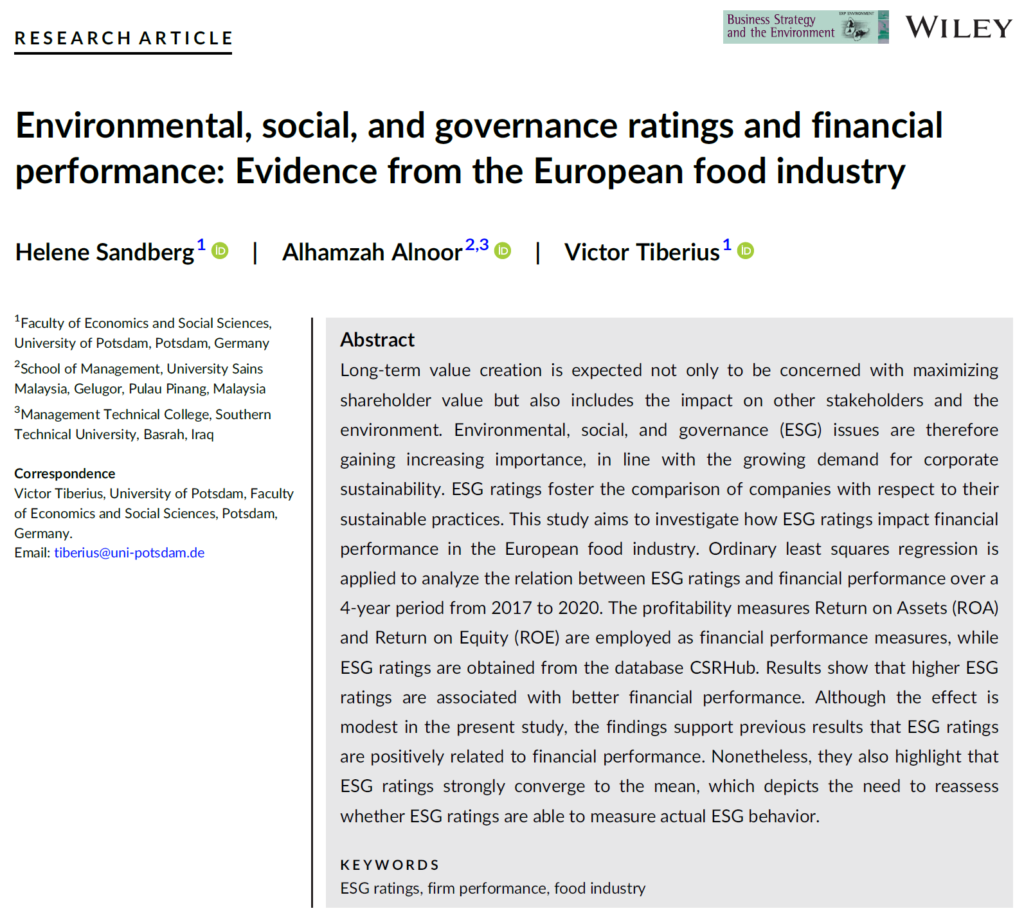University|05-18-2023
ESG ratings and financial performance of European food firms
Abstract:
Long-term value creation is expected not only to be concerned with maximizing shareholder value but also includes the impact on other stakeholders and the environment. Environmental, social, and governance (ESG) issues are therefore gaining increasing importance, in line with the growing demand for corporate sustainability. ESG ratings foster the comparison of companies with respect to their sustainable practices. This study aims to investigate how ESG ratings impact financial performance in the European food industry. Ordinary least squares regression is applied to analyze the relation between ESG ratings and financial performance over a 4-year period from 2017 to 2020. The profitability measures Return on Assets (ROA) and Return on Equity (ROE) are employed as financial performance measures, while ESG ratings are obtained from the database CSRHub. Results show that higher ESG ratings are associated with better financial performance. Although the effect is modest in the present study, the findings support previous results that ESG ratings are positively related to financial performance. Nonetheless, they also highlight that ESG ratings strongly converge to the mean, which depicts the need to reassess whether ESG ratings are able to measure actual ESG behavior.
Reference:
Sandberg, H., Alnoor, A., & Tiberius, V. (2023). Environmental, Social, and Governance ratings and financial performance: Evidence from the European food industry. Business Strategy and the Environment, 32(4), 2471-2489, doi:10.1002/bse.3259.




